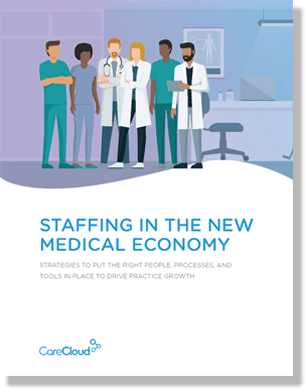The uncertainties surrounding the future of Medicare physician reimbursements have doctors across the U.S. concerned for their practices and patients.
If the planned 27.4% Medicare payment cut is not further postponed or resolved before the coming two-month reprieve is up, it will be more difficult than ever for doctors to receive adequate payment for administering care to the elderly.
There are plenty of questions hovering over medical practice operations in this insecure reimbursement environment: Can physicians afford to take on new Medicare patients? Is it ethical to disenroll from Medicare? If the cuts ever do go through, how would the elderly pay for treatment?
Unmet Care Costs
As the cost of delivering medical care has steadily risen, the Medicare reimbursement rate has stayed mostly the same for the last decade – averaging about 20 percent less than private insurers.
Amid that financial difficulty, reports that doctors are turning away Medicare patients have been making the news for years. Some physicians claim that instituting a no-new-Medicare patients rule or limiting the number they accept is the only way they can stay in business.
“The payment from Medicare for our services is less than it costs us to provide those services,” said Dr. Conrad Flick, a partner in Family Medical Associates, a Raleigh, N.C. practice that stopped taking on new Medicare patients several years ago.
“Our job is to take care of patients, which is what we love, but if we can’t run our business, we can’t take care of any patients,” he said.
A Moral Quandary
No doctor relishes turning away an individual in need of medical care, especially an elderly person. It’s saddening that those Americans most in need of health care – those who are older or disabled – are the ones being declined.
As the first baby boomers turn 65, more Americans than ever will be turning to Medicare for insurance only to face the prospect of being turned away by providers.
In fact, more and more practices are considering completely disenrolling from the Medicare system. Though Medicare laws are designed to discourage physician nonparticipation, it is legal for providers to withdraw.
“Under the U.S. Constitution, Congress has no express authority to compel physicians to enroll in a government program in order to serve their patients,” says Dr. Jane M. Orient, executive director of the Association of American Physicians and Surgeons (AAPS).
The AAPS advocates physician nonparticipation in Medicare, arguing that it is unethical for Medicare to impose regulations on the practice of medicine by pushing doctors to accept government funding.
But is it moral for a practicing physician to refuse to be involved in the system? Medicare provides the vast majority of funding for physician residency training programs in the U.S., in large part to foster the education of the doctors who will someday participate in its program.
So not only does Medicare disenrollment enable physicians to deny care to the elderly, some liken doing so to skipping payments on a student loan.
Is There Another Way?
Every physician has a right to decide what’s right for his practice, but if every doctor were to disenroll from Medicare, the aging population would face an extremely dire field of options for obtaining medical care.
The frightening prospect of the Medicare cuts makes this an almost conceivable possibility. Some medical advocacy groups estimate that if the 27.4% cuts were to actually go into effect, as many as two-thirds of the nation’s doctors would stop taking new Medicare patients.
Nontraditional approaches to practice management, such as direct pay or “concierge” models of care, are growing in popularity and could bridge the growing gap in the availability of care for the elderly. By enabling patients to pay providers directly for their medical treatment, these models cut out Medicare altogether.
AAPS claims it is feasible to disenroll and still care for Medicare beneficiaries by employing payment models like these. Yet such approaches are often very expensive for older and disabled individuals who require a great deal of healthcare treatment.
In Need of Resolution
No matter how they approach the addition of new Medicare patients, most U.S. physicians are hoping Congress develops a real solution to the Medicare problem before it causes major turmoil for the nation’s newly-Medicare eligible patients.
“Eleventh-hour legislation that fails to meet the needs of constituents is no way to conduct the nation’s business,” said Glen Stream, the president of the American Academy of Family Physicians, in a statement.
“That is particularly true when millions of Americans’ health and welfare are at stake.”
What is your opinion on the current state of affairs regarding Medicare?
Madelyn Young is a Content Writer for CareCloud and an expert on practice management, medical billing, HIPAA 5010, ICD-10 and revenue cycle management. You can read her work on Power Your Practice and the CareCloud Blog. Contact Madelyn with story suggestions, contributor articles, or any other feedback at madelyn@poweryourpractice.com or follow her on Twitter @madelyn_young.
The material and information contained on this website is for general information purposes only. You should not solely rely upon the material or information on the website as a basis for making any business, legal, medical, or any other decisions. While we endeavor to keep all information up-to-date and correct, all information in this site is provided "as is," and CareCloud Corporation and MTBC Inc. make no representations or warranties of any kind, express or implied, about the completeness, accuracy, reliability, suitability, or availability with respect to the information contained on the website for any purpose. Any reliance you place on such material is therefore strictly at your own risk.



